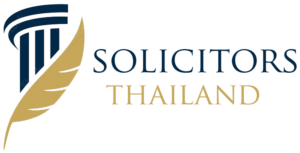Property Leasehold in Thailand. In Thailand, foreigners are prohibited from owning freehold land, except under rare statutory exemptions. As a result, leasehold arrangements have become a primary legal mechanism allowing non-Thais to secure long-term use of real property. Leasehold is governed by the Civil and Commercial Code (CCC) and the Land Code, and must comply with strict formal and registration requirements to be legally enforceable and transferable.
While leaseholds offer flexibility and legal protection when properly executed, they also carry durational limitations, renewal uncertainties, and enforceability constraints. This article provides an in-depth review of leasehold law in Thailand, examining its practical applications and key legal issues.
1. Legal Foundation of Leasehold in Thai Law
1.1 Governing Law
Leasehold rights in Thailand are primarily governed by:
-
Sections 537–571 of the Thai Civil and Commercial Code (CCC), which regulate lease agreements and obligations
-
Land Code B.E. 2497 (1954), which mandates registration for leases of land and buildings exceeding three years
-
Condominium Act B.E. 2522, for lease of condo units
Leasehold does not confer ownership, but a personal right of use for the lessee, enforceable against the lessor for the agreed term.
2. Form and Validity of Lease Agreements
2.1 Essential Requirements
To be legally valid, a lease agreement in Thailand must meet the following criteria:
-
Written form (required for leases exceeding 3 years)
-
Identification of parties, property, rent, and term
-
Registration at the local Land Office for leases longer than 3 years (Section 538 CCC)
-
Clear stipulation of use rights and any conditions for renewal
Failure to register a long-term lease renders it legally enforceable only for three years, even if the contract stipulates a longer period.
2.2 Registration Process
-
Conducted at the provincial or district Land Office
-
Title deed (Chanote or Nor Sor 3 Gor) must be presented
-
Lessee and lessor must appear in person or via authorized representatives
-
Lease term is recorded on the back of the title deed
-
Registration fee: 1.1% of total lease value (rental over the entire period)
If the property is mortgaged, the mortgagee’s consent is required prior to lease registration.
3. Lease Duration and Renewals
3.1 Legal Maximum Duration
Under Section 540 CCC, the maximum lease term permitted is:
-
30 years for residential or commercial use
-
Renewable for another 30 years, but renewals are not automatic
If the lessor refuses to renew, the lessee cannot compel enforcement unless the renewal is contractually binding and expressly registered.
3.2 Renewal Clauses
Renewal clauses must:
-
Be clearly stated in the contract
-
Be re-registered at the Land Office at the time of renewal
-
Obtain consent from any new owner (in case of land transfer)
Courts have consistently held that future promises to renew do not bind successors unless separately agreed and registered.
4. Lessee’s Rights and Restrictions
4.1 Right to Possess and Use
Lessee has the right to:
-
Exclusive possession of the property for the lease term
-
Use of the property according to the lease purpose
-
Quiet enjoyment, provided rent is paid and terms observed
Thai law grants lessees possessory protection under Section 1367 CCC if disturbed unlawfully by third parties.
4.2 Right to Sublet or Transfer
Unless expressly prohibited in the contract, the lessee may:
-
Sublease the property
-
Assign the lease to another party
-
Mortgage the leasehold (with limitations)
However, subleases and assignments exceeding 3 years must also be registered and require lessor consent unless otherwise waived.
5. Leasehold in Practice: Key Applications
5.1 Residential Property for Foreigners
Foreign nationals commonly lease:
-
Villas or land plots in resort or urban areas
-
Land for constructing a house, coupled with a superficies agreement to own the structure
These arrangements require careful contract drafting to preserve the foreigner’s interest in the building while acknowledging their non-ownership of land.
5.2 Commercial Real Estate and Industrial Use
Foreign or Thai companies lease land for:
-
Factories, warehouses, and logistics operations
-
Office buildings and mixed-use projects
-
Agricultural and plantation ventures
Long-term commercial leases may also be registered with the Board of Investment (BOI) if part of an investment promotion scheme.
6. Foreign Participation and Corporate Structuring
6.1 Lease by Foreign Individuals
Foreigners may lease land or condominiums under the same rules as Thais, provided they:
-
Comply with registration requirements
-
Do not use lease as a nominee ownership structure (which is prohibited under the Land Code)
Thai authorities monitor lease arrangements that mimic de facto ownership or are part of evasion schemes, especially when combined with Thai nominee companies.
6.2 Corporate Lessees
Thai companies with foreign shareholders may lease land, subject to:
-
Review of shareholding structure
-
BOI or IEAT (Industrial Estate Authority of Thailand) approvals in some cases
-
Anti-nominee enforcement (Land Code Section 96 bis)
If the lessee is a BOI-promoted company, longer leases (up to 50 years) may be authorized under specific conditions.
7. Common Legal Pitfalls and Disputes
7.1 Non-Registration
Unregistered long-term leases are a major risk:
-
Cannot be enforced for more than 3 years
-
Do not survive land transfer to third parties
7.2 Succession and Land Sale
If the land is sold or inherited:
-
The lease remains valid if registered
-
Successor lessors may not honor unregistered extensions or side agreements
7.3 Eviction and Breach
In case of lessee breach (e.g., non-payment), the lessor may:
-
Issue formal notice to cure
-
Terminate the lease under contract terms
-
File for eviction and damages in civil court
Conversely, if the lessor breaches, the lessee may claim damages or specific performance, subject to evidence and court approval.
8. Alternatives and Leasehold Enhancements
8.1 Usufruct
Grants a right of use over immovable property, typically for life. Cannot be inherited or assigned. Useful in family planning scenarios.
8.2 Superficies
Allows a foreign lessee to own buildings constructed on leased land. Registered separately from the lease. Common in villa projects.
8.3 Long-Term Lease + Option to Buy (not land)
Foreigners may combine a registered lease with:
-
Option to purchase a building upon lease expiry
-
Separate contractual rights for renewals or assignments
9. Taxation and Regulatory Fees
-
Lease registration fee: 1% of total lease value
-
Stamp duty: 0.1% of total lease value
-
Withholding tax: 5% (applies to rental income if paid to individuals)
Land rent may also be subject to the Land and Building Tax Act B.E. 2562, payable annually by the owner or as agreed in the lease.
Conclusion
Leasehold in Thailand offers a lawful and flexible mechanism for foreigners and businesses to secure long-term property use, particularly where land ownership is prohibited. However, its enforceability depends heavily on contract precision, proper registration, and compliance with statutory limits.
Lessee rights are robust under Thai law when formalities are respected, but renewals, succession, and land transfers can present significant legal vulnerabilities. Structuring leasehold arrangements through supplementary rights—such as superficies, usufruct, or secured contractual terms—can enhance protection, but must be done within the legal framework.
Legal due diligence, professional drafting, and Land Office coordination are essential steps in mitigating leasehold risk in Thailand.

